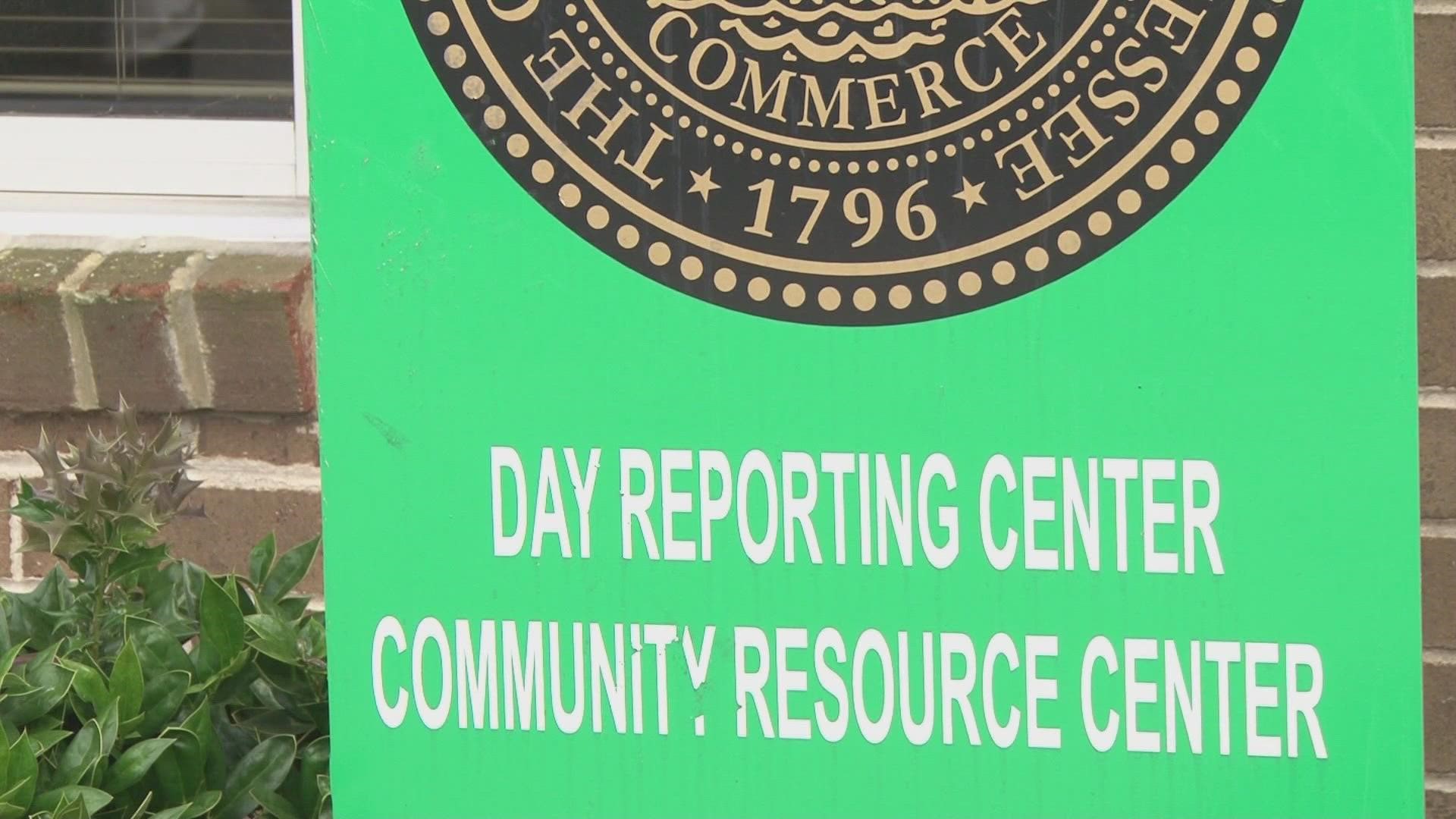KNOXVILLE, Tenn. — On Thursday, Brandon Styles looked back on his past. He's come a long way in just a few short years.
"It's a completely new life to me," he said.
Styles is one of the most recent graduates of the Tennessee Department of Corrections Day Reporting Center. He said it was a rigorous program that delivered life-altering results.
Now, Brandon works at a recovery center helping other folks who are battling active addictions. But, not long ago, he said he was in their shoes.
"I didn't know any other way except for just being out there and just going through the constant cycle of using and finding a way to get more," Styles said.
Styles lived in active addiction for 16 years, which led him to homelessness and eventually to criminal charges.
"I was ready to go to prison, and I know what happens in prison," Styles said. "You can have all the classes you want. But as soon as you leave, and you go back to your cell, there's no one saying, 'Let's do the next right thing.'"
Luckily for Brandon, he never made it to prison. Instead, the court ordered him to the Day Reporting Center, which is an outpatient rehabilitation and recovery branch of TDOC.
The TDOC DRC has been in operation since 2017. It was a part of the Public Safety Act rollout, which aimed to reduce crime and also address growing prison populations.
"For the right individuals, this is the place they need to be. They don't need to go to prison," said Sherry Crouse, the director of DRC.
She said the program helps alleviate some of the pressures of overcrowding in prisons.
"It's physically smart to not have people incarcerated, it saves the taxpayers a lot of money. And we're being a good steward of state dollars by doing that," Crouse said.
The average prison bed in Tennessee can cost anywhere from $48 to $86 per day, per inmate. The cost per day, per offender for the DRC is $47.74, according to TDOC.
However, the most important part according to Crouse, is that the center is intended to turn people battling addiction into productive and inspired members of society.
"We really are working with people that most people have kind of written off as not being able to make it," Crouse said.
The DRC operates through a three-phase process. The first phase requires court-ordered offenders to attend 4 days per week. Those folks will work on things like anger management, confront substance misuse, find peer recovery groups, and participate in community service projects.
In the second phase, participants must attend three days a week. In that time, they will continue with therapies and learn about victim impact, parenting, health, and job readiness.
Phase three dives deeper into confronting the root of their addiction. It also sets folks up to maintain steady employment.
"Really, what we're trying to do is deal with him about why they're addicted," Crouse said.
Once all three phases are complete, the participants graduate and enter an aftercare program. Throughout the whole process, participants must stay sober. The facility conducts regular drug screenings to hold individuals accountable.
Brandon said accountability was his biggest takeaway.
"As soon as we take accountability for our actions, and we allow ourselves to take advantage of these opportunities, that's when life changes," Styles said.
Tabrina Blevins, who is currently in the DRC's first phase, said she is learning about the importance of accountability too.
"Days go by, years go by, you don't care about anybody about yourself," Blevins said. "And you really don't care about yourself at that point. You're just waiting to die."
Blevins said she attempted this program before. However, during previous attempts, she failed drug screenings. When that happens, the offender must re-appear in front of the judge to decide the next steps.
In Blevins' case, that meant going back to jail twice.
"This is actually my third experience. The first few times I obviously didn't pay attention, I didn't pass drug screens, I didn't care," Blevins said. "But, they saw something in me. So they continue to let me come back."
The court can order offenders to this program if they believe the root of their crimes is due to addiction. That was the case for Blevins, but this time she's taking the course seriously. She has a car and a license. She also said she's going to do whatever is necessary to get her kids back.
Crouse said the program is all about showing these people that they are cared for and that someone believes in them.
"We have just seen some awesome change in people that I never thought I would see," Crouse said.
Styles is a shining example of that.
"I don't think that I could be the man that I am in the community today without programs like this," Styles said.

